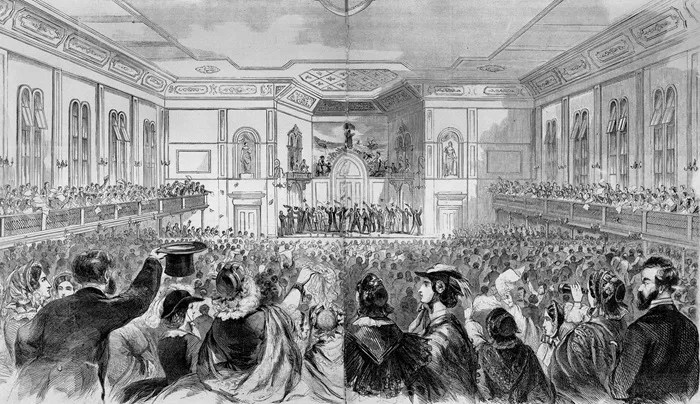December 20 has been a pivotal date in American history, marked by various significant events that reflect the nation’s political, social, and cultural evolution. This article explores these events in detail, providing context and implications for each occurrence.
What Happened on December 20 in American History?
1. South Carolina Secedes from the Union (1860)
On December 20, 1860, South Carolina became the first state to secede from the United States. This momentous decision came in the wake of the election of Abraham Lincoln as president. Lincoln’s platform was largely anti-slavery, which alarmed many Southern states that relied on slavery for their agricultural economy.The secession was formalized through a convention in Charleston, where delegates voted unanimously to dissolve the state’s ties with the Union. The declaration stated that the state had the right to secede due to what they perceived as violations of their rights by the federal government. This act set off a chain reaction, leading to the secession of several other Southern states and ultimately culminating in the Civil War.The significance of South Carolina’s secession lies not only in its immediate impact but also in how it symbolized the deep divisions within the country over issues of states’ rights and slavery. It marked a turning point that would lead to four years of brutal conflict, reshaping the nation’s landscape both politically and socially.
2. The Virginia Company Expedition (1606)
On December 20, 1606, three ships—the Susan Constant, Godspeed, and Discovery—set sail from London as part of the Virginia Company expedition to establish a colony in America. Under the command of Captain Christopher Newport, this expedition aimed to find gold and establish trade routes.In May 1607, these efforts culminated in the founding of Jamestown, which became the first permanent English settlement in North America. The establishment of Jamestown is significant as it marked the beginning of sustained European colonization in America. The challenges faced by the settlers—such as conflicts with Indigenous peoples, disease, and food shortages—highlighted the difficulties of establishing a new colony.The legacy of this expedition is profound; it laid the groundwork for future English settlements and significantly influenced American culture and society.
3. U.S. Invasion of Panama Begins (1989)
On December 20, 1989, Operation Just Cause commenced as U.S. forces invaded Panama. This military action was ordered by President George H.W. Bush with the stated objectives of protecting American citizens living in Panama, combating drug trafficking, and removing Panamanian leader Manuel Noriega from power.The invasion involved approximately 27,000 U.S. troops and was one of the largest military operations since Vietnam. Despite facing resistance from Panamanian forces, U.S. troops quickly achieved their objectives within weeks.The operation had significant implications for U.S.-Latin American relations and raised questions about American interventionism abroad. It also highlighted issues related to drug trafficking and its impact on national security policies.
4. Completion of Louisiana Purchase (1803)
While not directly on December 20 but closely related to this date is the completion of the Louisiana Purchase on December 20, 1803. This monumental land deal between France and the United States effectively doubled the size of the nation.President Thomas Jefferson orchestrated this acquisition, believing it would secure land for future generations and promote agrarianism. The purchase included territory that would eventually become 15 states and parts of Canada.The Louisiana Purchase is significant because it opened vast tracts of land for exploration and settlement while also raising questions about governance and slavery in new territories. It set a precedent for westward expansion that would define much of American history.
5. Deaths of Prominent Figures
December 20 has also seen notable deaths that impacted American culture and history:
Sacagawea (1812): A Shoshone woman who played a crucial role as an interpreter and guide during Lewis and Clark’s expedition across North America.
John Steinbeck (1968): An influential American author known for works such as The Grapes of Wrath, which highlighted social issues during the Great Depression.
Carl Sagan (1996): An astronomer and science communicator who popularized science through his books and television series like Cosmos.
Each of these individuals contributed significantly to their respective fields and left lasting legacies that continue to influence American thought and culture today.
Conclusion
December 20 has been a day rich with historical significance in America, reflecting pivotal moments that shaped national identity and policy. From South Carolina’s secession to military interventions abroad, each event contributes to a broader understanding of America’s complex history.As we reflect on these historical milestones, it is essential to recognize how they have influenced contemporary society and continue to resonate within current discussions about governance, rights, and international relations. Understanding these events allows us to appreciate not only where we have come from but also where we might be headed as a nation.
Related Topics:

